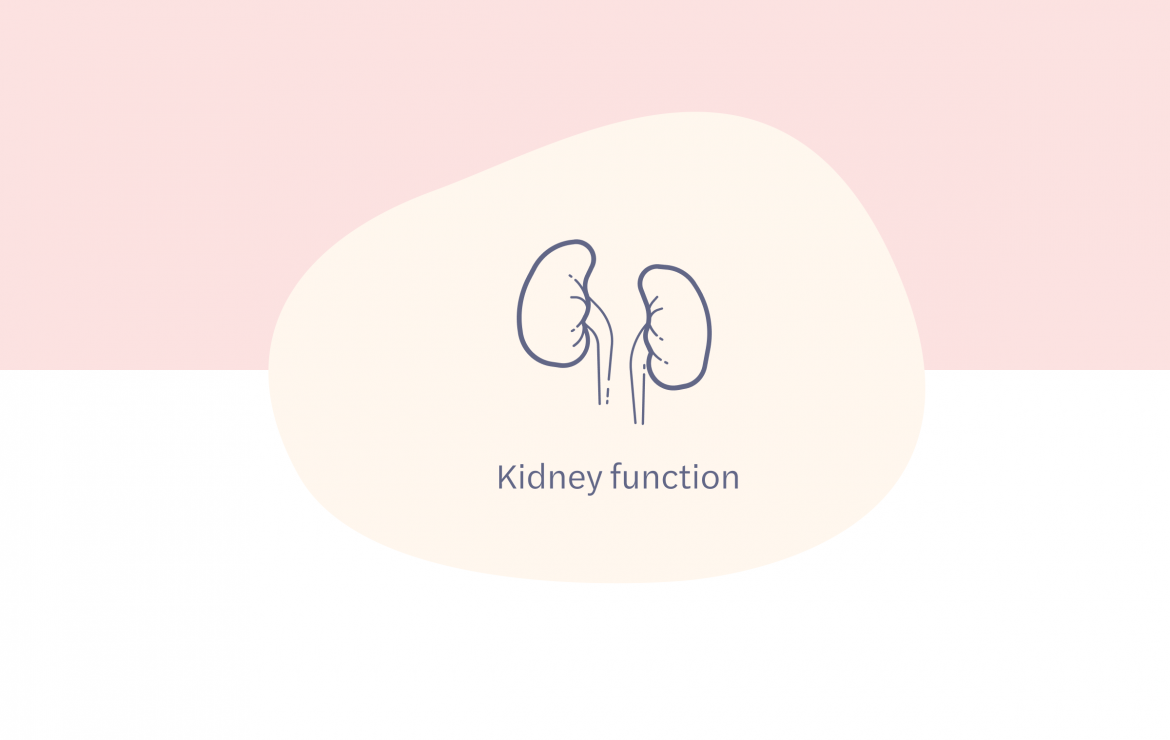Creatinine

Kidney function
What is Creatinine?
Creatinine is the breakdown product of a compound known as creatine. Creatine is found naturally in muscles and participates in the energy cycle that helps our muscle produce the energy required to contract.Creatinine levels in the blood are commonly measured to assess kidney function as virtually all creatinine is removed from the body by the kidneys. When our kidneys are not working properly, they will not be able to remove as much creatinine from the blood as they normally would, and the creatinine level in the blood will increase.
Why is this analysis important?
Creatinine levels in the blood can be determined as a part of a general health check to assess kidney function, i.e. how efficiently our kidneys remove waste from our body. Loss of kidney function does not usually lead to any symptoms in the early stage. Even at a later stage, the symptoms can be very unspecific, and appear in forms such as fatigue or swollenness. A blood test is therefore needed.
Doctors may also order a creatinine test if they suspect problems with kidney function or to follow the disease progression in patients with chronic kidney problems. Some medications (including many natural herbal products) can potentially be harmful to the kidneys and thus monitoring the kidney function can sometimes be necessary for people who regularly take certain medications for a long period of time.
In short, it is useful to analyse creatinine levels in the blood to:
-
Assess kidney function
-
Monitor the progression of kidney disease
-
Monitor the toxicity of some drugs
Results
The reference range for creatinine levels in the blood can be different depending on the laboratory and technique used. Sex and age can also affect the reference range. Doctors usually also take into account a number of factors such as height, weight and body composition when evaluating creatinine values.
High creatinine levels in the blood may be associated with:
-
Chronic and acute kidney disease
-
Drug toxicity
-
Dehydration
-
Muscle damage
-
Muscular diseases
-
Excessive protein intake
Low creatinine levels in the blood may be associated with:
-
Low muscle mass due to advanced age or disease
-
Very severe kidney disease
-
A diet with extremely low protein content
-
Pregnancy
Other Considerations
Creatinine levels in the blood are related to muscle mass. Bodybuilders with large muscles can therefore show high creatinine values that are outside the reference range without necessarily meaning that there is anything wrong with their kidneys. Use of protein and creatine supplements can also increase creatinine levels. Evaluation of kidney function in older people using creatinine value alone can be inaccurate as it is common to lose muscle mass at old age.
Due to these uncertainties, a creatinine test alone is often not sufficient to confirm or rule out problems with kidney function. It is therefore common to evaluate creatinine values together with other markers of kidney function such as the Estimated Glomerular Filtration Rate (eGFR), Urea and Cystatin C.
Tests that include this marker
References
Assessment of kidney function. Lesley A Inker, UpToDate Jun 12, 2018.









